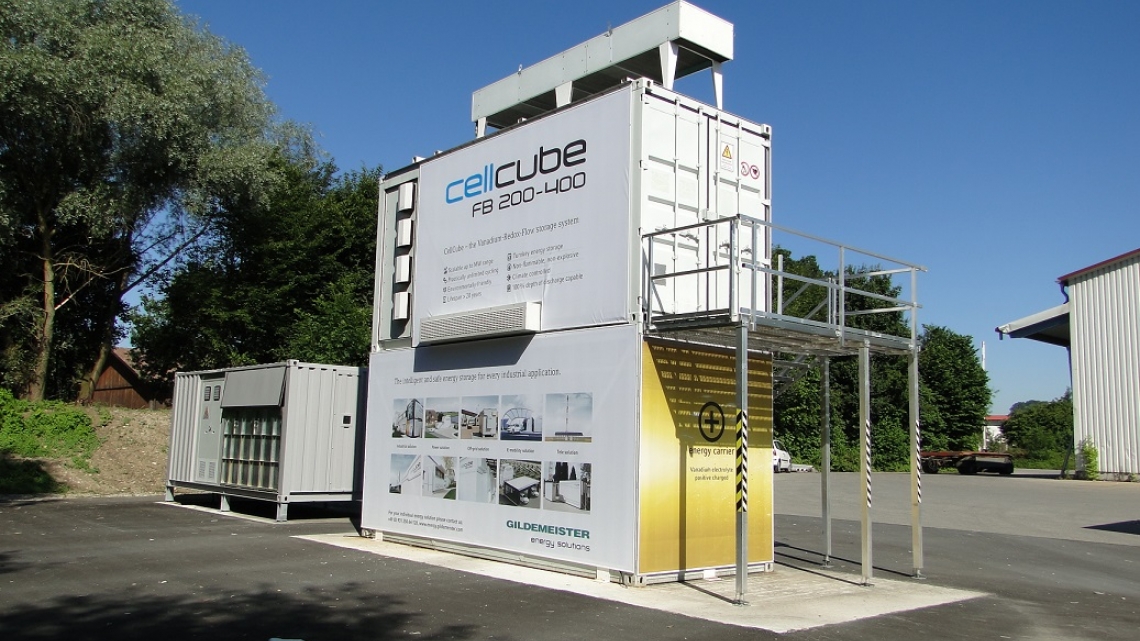
Hive Energy has entered into a consortium with battery storage firms CellCube and Immersa to joint build grid-scale solar-plus-storage projects using CellCube’s vanadium redox flow batteries, with a maiden project already in the works.
HICC Energy, as the consortium has been billed, was founded last week and will look to bring a portfolio of projects to market utilising third-party project financing.
The companies are currently in the process of development their first site, scheduled to go live later this year, and remain open to considering additional sites.
The trio cited new opportunities for long duration batteries created by the derating methodologies adopted by grid operators in the UK when factoring their capabilities in markets like the country’s Capacity Market.
Those derating factors have been designed to reflect any given project’s capability to respond to energy system stress events over the course of four hours, meaning that projects with longer durations than more prevalent lithium-ion technologies are better reward.
Hive, Immersa and CellCube said those market developments meant that combining solar with long duration storage technologies to be the “most competitive and commercially attractive solution” under current UK regulations.
While Hive will be responsible for the development of grid-connected solar farms under the partnership, Immersa will work on the deployment of CellCube’s vanadium redox flow technology.
Hugh Brennan, managing director at Hive Energy, said the advent of long duration storage becoming available at cost-competitive prices allowed it to offer a “reliable renewable energy supply to the market”.
“Predictable power generation not only offer services at an attractive price to the balancing market but can also enter the short term operating reserve or STOR market which allows access to sources of extra power,” Robert Miles, chief executive at Immersa, added.
Hive Energy is one of the parties behind a ~350MW pipeline solar project – Cleve Hill – which is currently progressing through the UK’s nationally significant infrastructure project planning process. If approved, it expects to be on site next year before the project being energised in 2021.
A grid-scale storage battery forms a part of that project’s plans, and Hive has previously knocked back media reports linking it with Tesla’s Powerpack technology, insisting no technology partners had been selected at the time.
It remains to be seen whether CellCube’s technology will be selected for the Cleve Hill project.
